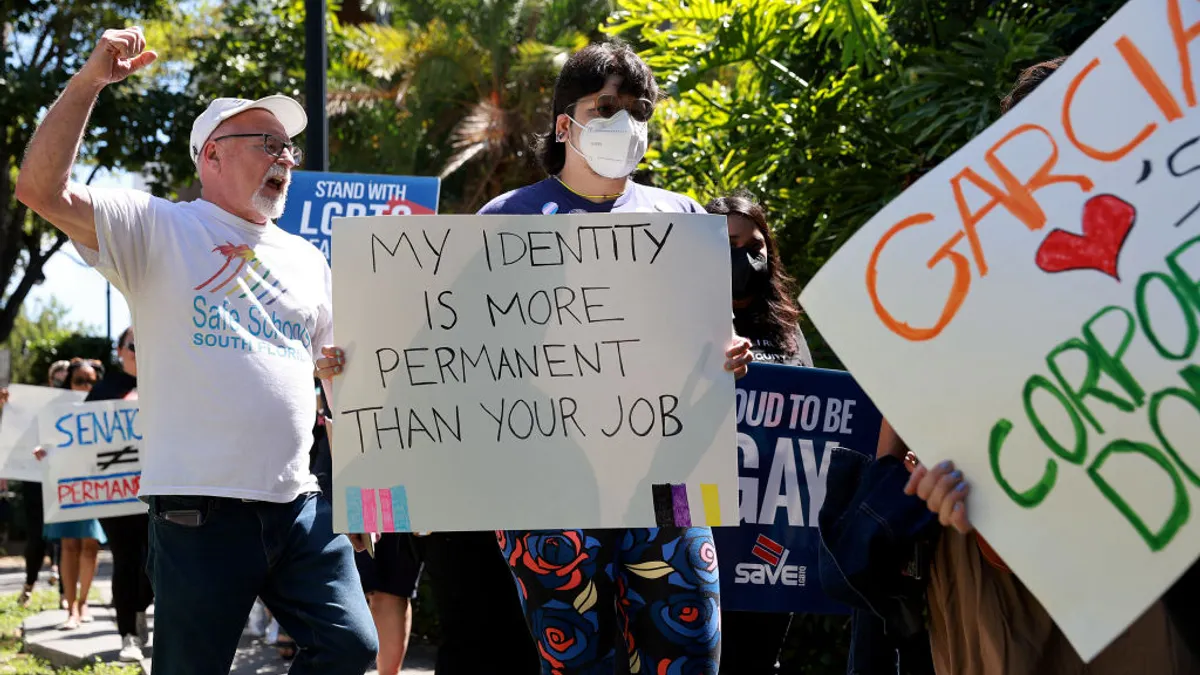Just like winter, flu season is coming. And as it does, employers grapple with the best way to protect their employees (as well as customers, patients, clients and students) from contracting the illness and spreading it through their organizations.
Flu, or influenza, is a respiratory illness caused by flu viruses, and can be mild to severe, even resulting in complications leading to death. Flu is contagious and spreads through person-to-person contact, from respiratory droplets from an infected person when they cough, sneeze or talk. Because a person can become infected even before experiencing symptoms, it can be difficult to reduce the spread of the disease. Flu is seasonal, and in the U.S. illnesses usually start in October, peak between December and February, and diminish in March. Flu viruses change constantly, so the Centers for Disease Control and Prevention (CDC) recommends getting a vaccine each year.
Flu prevention in the workplace
Flu doesn’t just affect individuals; it can have a significant impact on businesses when employees are sick. According to the CDC, the flu results in $10.4 billion in direct medical expenses and $16.3 billion in lost earnings each year. And significant numbers of workers say they continue to go into the office when they’re feeling under the weather — nearly 80% of them according to last year’s Staple Business Advantage cold and flu survey.
For some industries, such as healthcare, the risks go beyond employee illness and decreased productivity. Healthcare employees who have not been vaccinated can spread the flu to patients who may be particularly vulnerable to complications.
Organizations like the American Hospital Association support strong measures to prevent the spread of flu. This includes “mandatory patient safety policies that require either flu vaccination or wearing a mask in the presence of patients across health care settings during flu season,” according to Dr. Jay Bhatt, senior vice president and chief medical officer for the association. Associations like the National Business Group on Health and the American Academy of Family Physicians agree.
But not all employees want to get the flu vaccine. Less than half the U.S. population (45.6%) got the vaccine during the 2015-2016 flu season, according to the CDC, and their reasons vary. Some don’t think the vaccine will work (the 2016-2017 vaccine was 48% effective at preventing the flu); others assume they won’t get sick or worry that the side effects are more harmful than the flu itself. Still more have medical or religious objections.
Are mandatory shots the answer?
More than 600 health care organizations in the U.S. have taken a hard line, requiring employees get a flu vaccine or risk losing their jobs, according to the Influenza Action Coalition. But those mandates aren’t going unchallenged, according to Clarisse Thomas, an employment attorney with Shipman & Goodwin in Connecticut.
Three recent cases provide some warnings. A lawsuit filed against Baystate Medical Center last year in Springfield, Massachusetts, is still in discovery; the plaintiff says she was fired after refusing to get a flu shot because of religious objections. A similar suit filed against Mission Hospital in Asheville, N.C., is headed to trial; the employees in that suit say they were automatically denied accommodations because they missed the employer’s arbitrary request deadline. And a third employer, Saint Vincent Health Center in Erie, Pa., paid $300,000 to resolve a U.S. Equal Employment Opportunity Commission (EEOC) suit challenging its flu shot requirements.
Legal cautions for mandatory flu policies
Although some states, like New York, allow organizations and industries to adopt flu vaccine policies, the EEOC has made clear that employers should not maintain blanket vaccination requirements, says Thomas. However, it’s important to note that EEOC’s enforcement priorities could shift soon as President Trump’s picks for the commission take their posts.
In the meantime, healthcare organizations that do have mandatory flu policies may want to make clear that exemptions are available. As illustrated by the above court cases, employers are on shaky ground when they terminate employees for refusing the vaccine for religious reasons.
Employers also need to remember that the Americans with Disabilities Act (ADA) can come into play, both with respect to accommodation requests and medical inquiries. David Moore, employment lawyer at Laner Muchin in Chicago, says that employers must refrain from asking employees questions that aren’t “job-related and consistent with business necessity” as defined by the law. Questions about immunizations could potentially fall into that category, he said.
Finally, companies with collective bargaining agreements in place also may need to consider whether such agreements have implications for vaccine requirements.
Policy considerations
When implementing a mandatory policy, organizations need to consider if it will apply to all employees within the organization, or to a subset, says Nathaniel Glasser, attorney for Epstein Becker Green in Washington, D.C.
“If the company is in the healthcare industry, whether it’s a hospital, or another organization like a long-term care facility, I would consider implementing a mandatory policy at least for those employees that regularly interact with patients or similar clients, and encouraging the rest of the workforce to get vaccinations,” he said.
Those companies also must be prepared to make sincere efforts to accommodate employees who refuse the vaccines for religious beliefs, Glasser adds. This may include requiring the employee to use a surgical mask when working with others or allowing telecommuting or a temporary reassignment. Employers must ensure, however, these measures are not punitive.
What’s more, the organizations should be prepared to prove that the protective measure is a necessity for the employee’s job. For example, a healthcare employee who does not have direct contact with patients may not need to wear a mask.
The bottom line
Whether in healthcare or any other industry, it’s understandable that employers would want to limit the impact of the flu in their organizations. But to avoid the legal minefields associated with mandatory flu vaccines, employers may want to consider various options for encouraging workers to voluntarily get the flu vaccine.
On-site clinics or paid time off (to get the shot) are a few ways to accomplish that. Employers also can educate employees on the benefits and effectiveness of the shot, address myths and concerns, remind employees of flu prevention tactics (like frequent hand washing) and make clear that employees can and should stay home if they feel sick.
Flu season is on its way, but organizations can reduce their risks — of both a flu epidemic and litigation — with a solid flu prevention plan or a carefully implemented mandate.




















